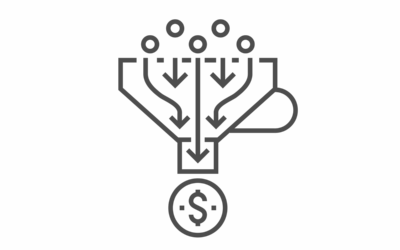The end of March is near, and the beginning of April is upon us … this first full month of spring brings not just April showers, but also the time-honored favorite day of pranksters worldwide, April Fool’s Day. As we prepare to get punked by friends, loved ones and colleagues alike in a mere matter of days, we’ve taken some time to reflect on several of the most memorable April 1st hoaxes pulled by well-known global corporations. Stunts such as these are undoubtedly controversial, and always spark heated water cooler conversation – are they brilliant schemes that result in scads of free publicity, or are they silly stunts that are often in poor taste whose results never match the hype? We’ll leave that for you to decide – read on!
While the below examples were successful real world stunts—today’s media savvy companies know that well executed ideas are perfect fodder for viral video and other social media platforms. Getting traditional media play is often a secondary goal after drawing thousands of online viewers who will ultimately enjoy and share the video, photos, and in the process build brand recognition unachievable through most traditional mediums.
Taking it to another level, some companies experience successful ties between viral video and existing ad campaigns, such as the Geico’s recent connection to the infamous “Numa Numa” dance.
Here are some of the best pranks pre-Web 2.0…… what can we expect to see this year?
The Taco Liberty Bell
On April 1, 1996 the Taco Bell Corporation announced via six major newspaper ads and a press release that the company had bought the Liberty Bell and was renaming it the Taco Liberty Bell. The announcement generated a huge response, as both Taco Bell HQ and the National Historic Park in Philadelphia (home of the bell) received thousands of phone calls from concerned citizens. Taco Bell issued a second press release at noon on April 1st to reveal that it was an April Fool’s joke. The stunt resulted in millions of dollars in free publicity for Taco Bell; their advertising firm Paine & Associates announced that “more than 650 print outlets and 400 broadcast outlets covered the Taco Liberty Bell story, featuring mentions of the “Nothing Ordinary About It” ad campaign. But let’s look at the bottom line: according to Taco Bell’s marketing department, their sales spiked upwards by over half-a-million dollars during the week of April 1st, compared to the week before.
The Left-Handed Whopper
On March 31, 1998, Burger King issued a press release announcing the introduction of the left-handed whopper, followed by a full-page ad in USA Today on April 1st. The new left-handed Whopper included the same ingredients as the original Whopper, except all of the condiments were rotated 180 degrees, to better suit the 32 million lefties in the U.S. On April 2nd the company issued a second release revealing the hoax, while also noting that thousands of customers had gone into restaurants to request the new sandwich, while many others requested the “right-hand version” as well.
Guinness Mean Time
In anticipation of the upcoming millennium, Guinness issued a press release on March 30, 2008 announcing that it had reached an agreement with the Old Royal Observatory in Greenwich, England to be the official beer sponsor of the Observatory’s millennium celebration. Per the release, the agreement stated that Greenwich Mean Time would be renamed Guinness Mean Time until the end of 1998 and, where the Observatory traditionally counted seconds in “pips,” it would now count them in “pint drips.” Also, a Guinness tavern would open inside the Observatory and the countdown would feature a Guinness clock counting “pint settling time.” The release was embargoed until April 1st but the Financial Times broke the embargo and used it as an example of companies taking advantage of the millennium for branding purposes. When they learned of the hoax the paper issued a retraction stating that the announcement “was apparently intended as part of an April 1 spoof.”
By Kate Jay and Lauren Shankman


